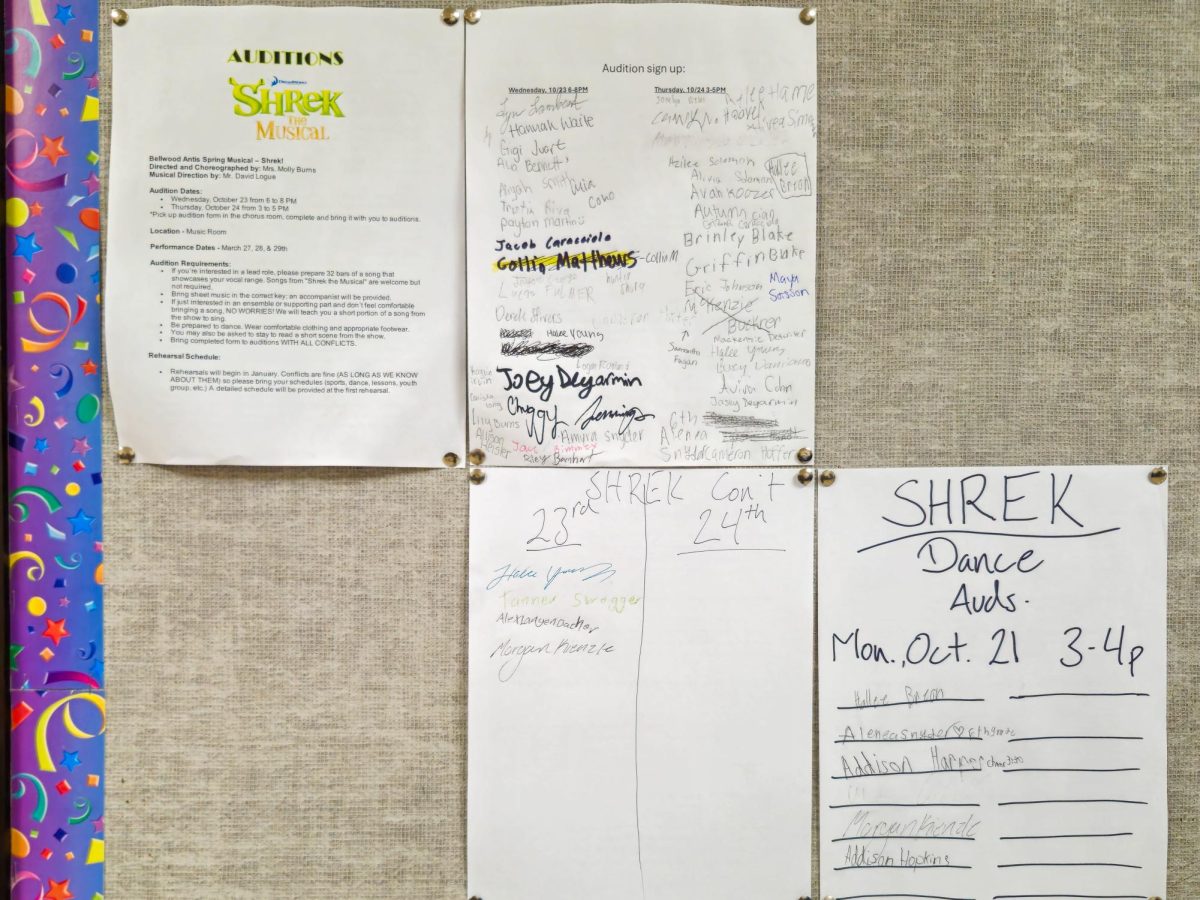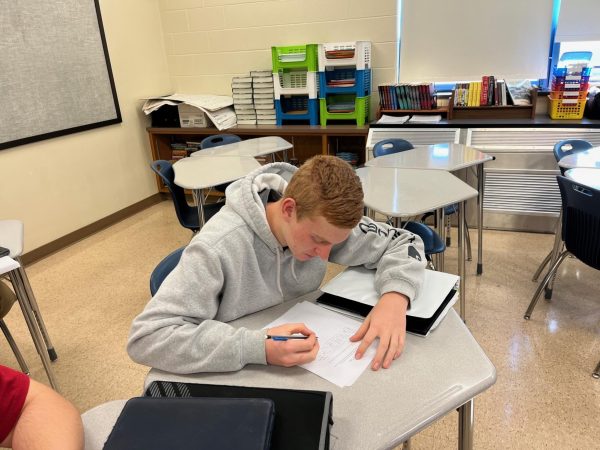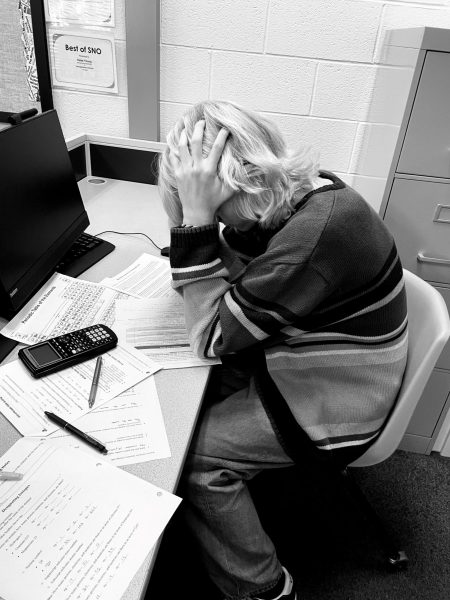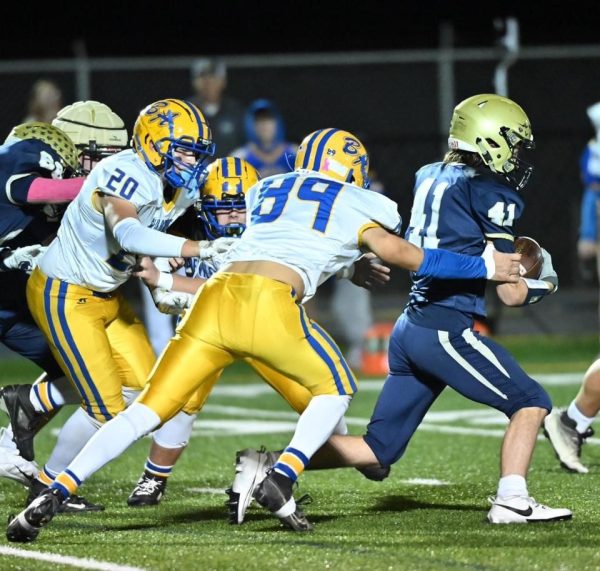Dealing with sports injuries
Season-ending injuries are tough for young athletes to handle
Dallas Huff suffered his share of injuries while at B-A, none more heartbreaking than the broken wrist he sustained last football season.
October 20, 2015
Last football season, then-senior Dallas Huff snapped his wrist in front of a playoff crowd at Memorial Stadium in a game against Penns Manor.
Everyone stopped, then stared in shock, as he came running to the sideline with his hand dangling from his wrist. This gruesome injury put Dallas on the sideline for the last football game of the season and for his entire wrestling season.
“As I was in the hospital and they told me I’d never play high school football again, I felt lost. It was all I wanted to do at the time, and it was the worst news I have ever gotten,” said Dallas, who now plays football at Juniata College.
In today’s sports world, thousands of athletes every year suffer injuries that can put them on the shelf for an entire season.
Ten percent of athletes in the United States, 3.8 percent of them, suffer from concussions alone, without even considering the many other causes of injuries.
As one might imagine, it is tough news to take.
B-A senior Noah D’Angelo, a three sport athlete, said that when he tore his ACL in 2011, it was one of the most difficult things he has ever experienced.
“The majority I’ve worked with take it pretty well. They realize it isn’t the end of the world,” said B-A athletic trainer Jesse Glass. “But athletes who are seniors take it pretty hard.”
D’Angelo said, “It’s very tough and challenging to watch everyone else on the team do what you love.”
Not only is it hard to take the news, but it can also be hard as a coach or trainer to break the news to an athlete.
“You have to go about it in a sympathetic and understanding way,” said Glass. “The best way is to put yourself in their situation and think of how you would want to be told.”
The the recovery process and rehabilitation could be just as tough.
Senior Marissa Panisiti tore her ACL in 2013 at an outdoor soccer tournament.

Marissa Panasiti suffered an ACL injury when she was a sophomore but has recovered to become a record-setting goal scorer in soccer.
A soccer and track star at B-A, Pansiti said, “Rehab was one of the hardest things I’ve ever had to do. It was mentally and physically exhausting.”
Both D’Angelo and Panisiti said it wasn’t difficult for them to keep working hard. Even though they wouldn’t get to participate in games, their hard work had a bigger reward of getting to play once more.
“Making a good comeback is something to be proud of. Most athletes can’t come back from such a devastating injury (as an ACL tear),” said Noah.
Another tough part about an injury is how a player can become disconnected from their team by not getting the same experience of being out there between the lines.
Rather than succumb to self-pity, Panasiti used her injury for personal growth.
“I was still a captain. Instead of leading on the field, I had to learn how to lead off the field,” Marissa said.
Bellwood-Antis graduate Ellen Crook (Class of 2014), who is currently a standout Track & Field athlete at the University of Pittsburgh, was once a great basketball player at B-A. Ellen suffered a fall during one of her basketball games that resulted in an ACL tear.
This injury caused her to throw in the towel for the season, and for the rest of high school.
Crook also dealt with concussions in high school, which forced her to stop playing sports with contact.
“I was really upset at first and it was hard throughout the time I was off,” Crook said. “But I also tried to see the benefit of it and get better in other aspects, and stronger while I had to rehab.”






